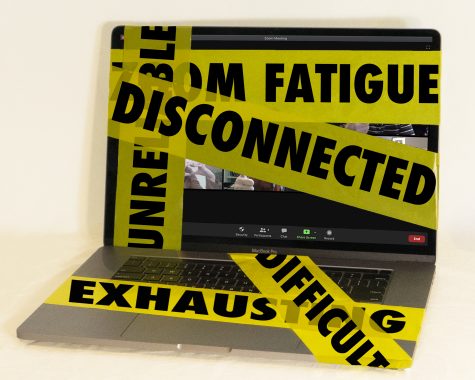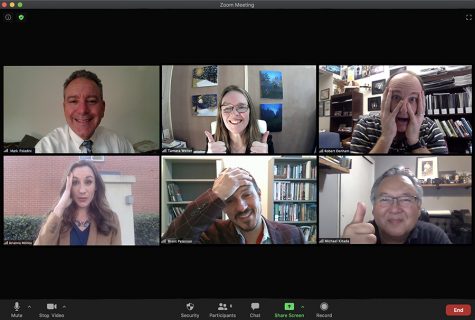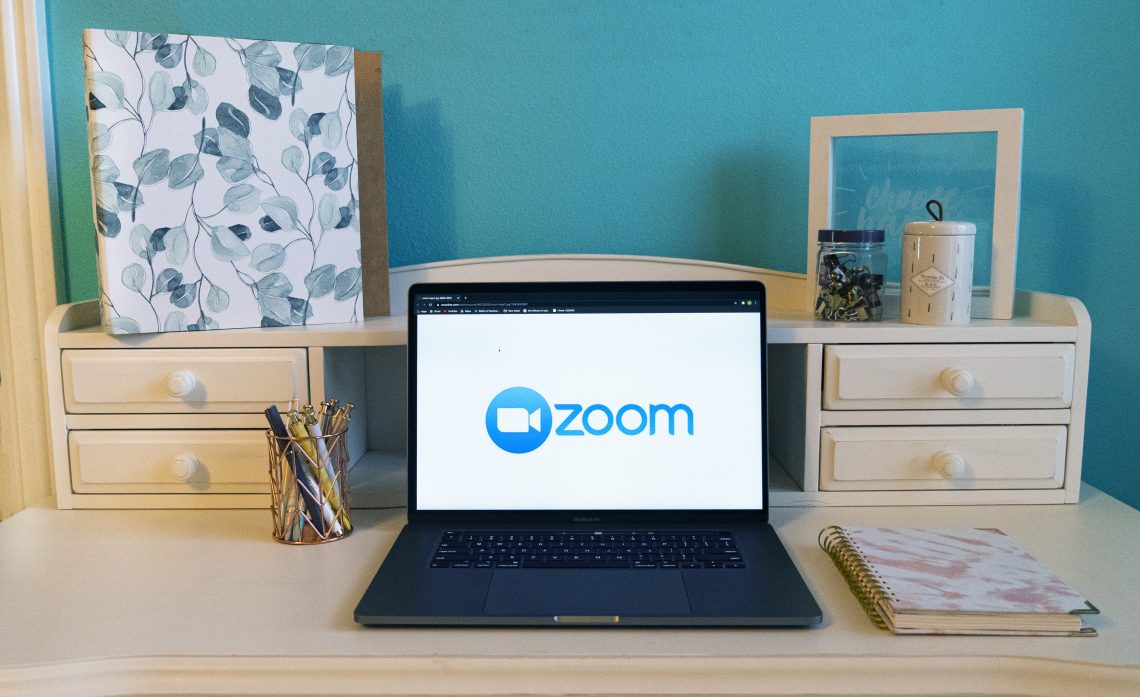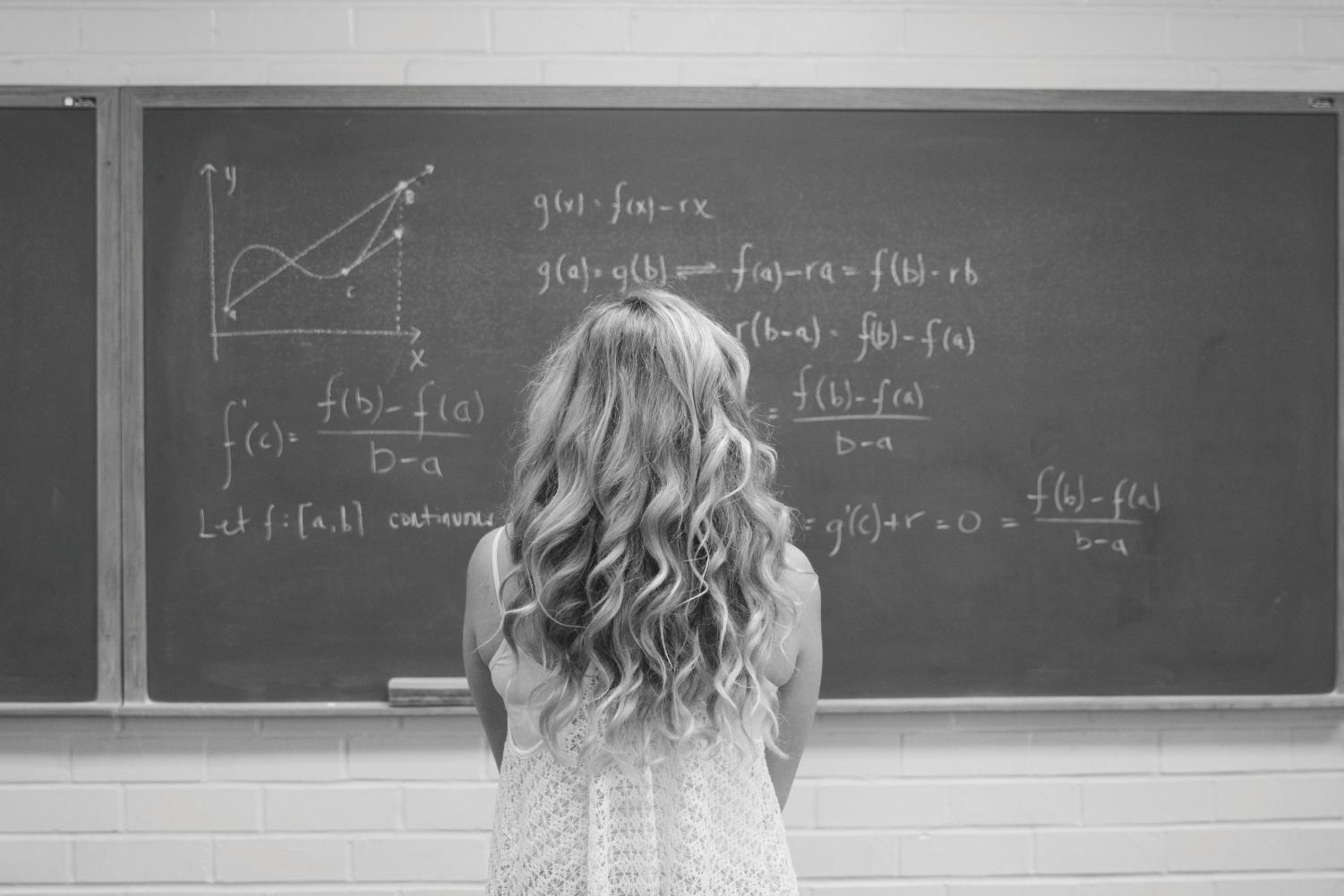Written by Charlotte Snyder, photographed by Jalin Cerillo
Eight out of 10 students report experiencing increased stress due to the switch to online schooling, and they are not alone. Professors face a multitude of challenges as they adjust their class content to an online format.
The American Council of Education found that professors across the country are struggling in many of the same ways that students are.
“Many [professors] are trying to keep a sense of normalcy despite experiencing their own uncertainties, fears, and anxieties,” ACE wrote. “[Professors] are quickly adapting to new ways to do business, juggling work-life balance, and addressing the new and varying academic and student life issues.”
Biola professors are more than up to the challenge.
NEW TECHNOLOGY
Communication studies professor Arianna Molloy continues to adapt her teaching style and curriculum to better fit a remote learning environment.
“We have to learn new ways of doing everything,” she said. “That part is hard. We can’t assume that what worked in person is what works online.”
Biola professors have found that technical difficulties, internet connection issues, time zone differences and reduced interpersonal connectivity have made teaching in an online format challenging.
“The silence feels louder [over Zoom],” Molloy said. “[But] God is not limited or intimidated by technology.”

To provide the same level of education they delivered when classes were in-person, professors are using new tools. Other than utilizing discussion boards on Canvas, professors have also taken advantage of Zoom features like the chat function, breakout rooms and screen share.
Music theory and composition professor Robert Denham said that the polling tool on Zoom is especially useful and would still be effective once students return to campus.
“It can be very comforting for students to learn that other students in the class may also be struggling with the same fears, setbacks, or questions,” he said. “It’s also helpful for the instructor to have this feedback firsthand.”
DISADVANTAGES FOR THE ARTS
Due to their reliance on the in-person aspects of learning, the arts are facing more challenges with distance learning than many other departments. Nevertheless, Biola art professors are confident that their classes are flourishing despite the distance.
Screen acting professor Mark Paladini argues that some of his students have benefited from online learning.
“A distance performance class usually has less students than an in-person class,” he said. “[So] the students get to perform more scenes and experience more exercises.”
Paladini admits that students lose the in-person feeling of scenes, but that certain aspects of screen acting are easier to teach over Zoom.
“A distance class provides an emphasis on what the camera picks up in frame,” he said. “Which is crucial for a screen acting class.”
Paladini also uses technology to his advantage in classes by putting the attention on only a few students at a time.
“Instead of having a full gallery of students, [I] only have two students have their video on and spotlight them in an activity,” he said.
Denham has found that his students are willing to work through any technical challenges his classes face.
“Biola students are amazing. I’ve sensed a great wave of grace from them as we’ve all had to adjust together to a new normal,” Denham said.
CONCERN FOR STUDENTS

Biola professors acknowledge that the newly introduced learning process has put more responsibility on students’ shoulders and added weight to their workload.
“I think students always knew they were supposed to read the material, but now they really have to do it to keep up,” Denham said.
To deal with a lack of student engagement and participation in class, physiology and public health professor Brent Peterson puts himself in his students’ shoes.
“When I do this, I gain a much more broad understanding and empathy for the things they may be going through,” Peterson said.
Molloy also understands that it can be hard for students to participate in class as much as they used to as they are juggling their work and home lives along with their school work.
“If you are exhausted and feeling weighed down by life, but choose to show up to class, that’s a win,” Molloy said.
TRUSTING IN GOD
Biola students can take comfort in the knowledge that they have an army of professors praying over them.
“[I] get to the classroom early and pray over the empty chairs, envisioning my students there,” Molloy said.
Denham urges overwhelmed students to trust God and reach out to someone.
“Tell someone when you’re struggling…don’t use the excuse that you are afraid of inconveniencing them,” he said. “That’s what God put people into your life for.”
Peterson quoted Jeremiah 29:11 as a guiding passage for this year’s students and faculty: “For I know the plans I have for you,” declares the Lord, “plans to prosper you and not to harm you, plans to give you hope and a future” (NIV).
Despite the challenges of their present circumstances, Biola professors are using new technology to their advantage, connecting with students and furthering their trust in God. As professors pray over their students, hopefully students will consider praying over their educators too.





